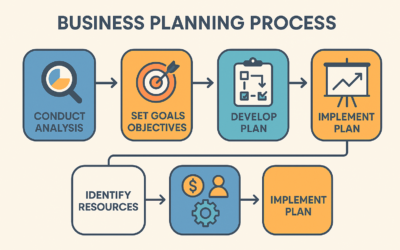Small business owners regularly face a range of struggles every day. Without the resources of larger companies, the business owner is often left to do many tasks that can drag on into the evenings and affect family time.
These struggles can include:
- Employee turnover
- Financing
- Marketing costs
- Time management, and
- Access to modern technology
It’s no wonder that they often have doubts about whether running their own business is worth it.
Whether you are struggling with your business, or it is going great guns, an exit strategy is one of the most crucial aspects of running your own business. Yet it is one that far too many business owners leave far too late.
Here are the reasons why an exit strategy is vital to the overall success of a business.
Business owners become weary
Building a business from scratch and turning it into a successful operation is challenging. It takes significant amounts of time, often outside normal business hours. It can also take a lot of money and risk.
It is not unusual for business owners to use their homes as collateral to get a business loan. If the business fails, they might lose more than just their business and their source of income, they could lose their home too.
Too often the business owner is left doing far too much work, much of which is well outside their areas of expertise.
Because they have so much at risk, they can be unwilling to delegate tasks and therefore take on even more work for themselves.
Fatigue and burnout can become genuine issues.
If they do decide to sell the business, to get the best possible price, they need to have accurate records of business performance, revenue history, and other paperwork available. This can take several months to put together in among the normal work requirements, and just adds further stress to the owner.
A business exit strategy ensures that a business owner has systems in place for recording essential information that is always available.
Get a better understanding of revenue streams
Having an exit plan will ensure that business performance data is always up to date. The business will always have a good understanding of revenue and cash flow.
This accurate financial data enables better business decisions to be made.
Knowing the exit strategy helps the business owner decide what projects to take on and which to turn down. There’s no point in getting involved in a two-year project if you are intending to exit the business in six months. Instead, you would focus on short-term projects to bring in more income and increase the business value.
Developing effective leadership
If the next owner is a family member of a current staff member, the business owner can start preparing them for the takeover. The better the buyer knows about the business, the more value they will see in it and the more they will be prepared to pay.
A clear succession plan detailing decision-making roles minimizes risks and gives the buyer greater confidence in the long-term ongoing success of the business.
Smooth operations
The exit plan will include all the necessary information for the buyer to be able to continue operations for day one. They won’t need to waste resources collecting information like salaries, finances, and business relationships.
An exit plan will allow the business owner to track the business’s finances and ensures a smooth transition to a new owner.
Check out Global Resources LLC if you have questions about business exit strategies.

0 Comments